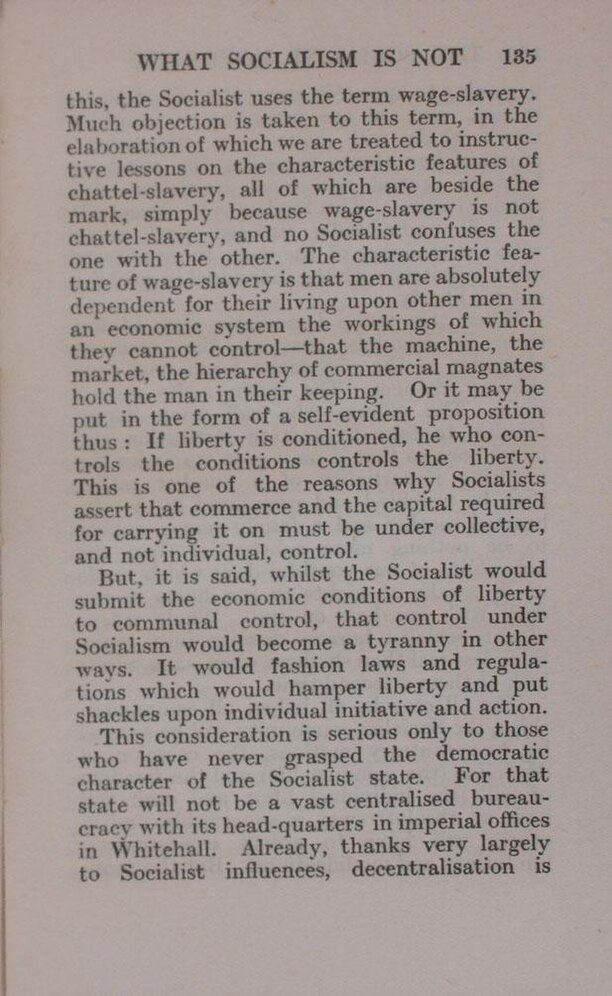this, the Socialist uses the term wage-slavery. Much objection is taken to this term, in the elaboration of which we are treated to instructive lessons on the characteristic features of chattel-slavery, all of which are beside the mark, simply because wage-slavery is not chattel-slavery, and no Socialist confuses the one with the other. The characteristic feature of wage-slavery is that men are absolutely dependent for their living upon other men in an economic system the workings of which they cannot control—that the machine, the market, the hierarchy of commercial magnates hold the man in their keeping. Or it may be put in the form of a self-evident proposition thus: If liberty is conditioned, he who controls the conditions controls the liberty. This is one of the reasons why Socialists assert that commerce and the capital required for carrying it on must be under collective, and not individual, control.
But, it is said, whilst the Socialist would submit the economic conditions of liberty to communal control, that control under Socialism would become a tyranny in other ways. It would fashion laws and regulations which would hamper liberty and put shackles upon individual initiative and action.
This consideration is serious only to those who have never grasped the democratic character of the Socialist state. For that state will not be a vast centralised bureaucracy with its head-quarters in imperial offices in Whitehall. Already, thanks very largely to Socialist influences, decentralisation is
